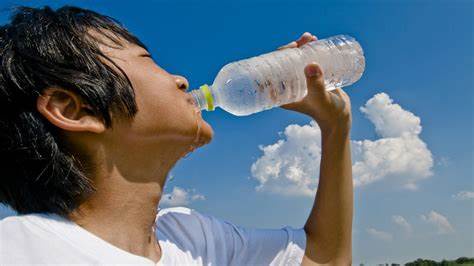Introduction
Dehydration is a common condition that occurs when the body loses more fluids than it takes in. It can have significant effects on overall health and well-being. In this article, we will explore the causes, symptoms, and prevention methods for dehydration.
Table of Contents
- What is Dehydration?
- Causes of Dehydration
- Symptoms of Dehydration
- Recognizing Dehydration in Different Age Groups
- The Importance of Staying Hydrated
- Prevention Tips for Dehydration
- Hydration and Physical Activity
- Hydration and Illness
- Dehydration in Special Populations
- Signs of Severe Dehydration
- Treating Dehydration
- When to Seek Medical Help
- Dehydration Myths Debunked
- Conclusion
1. What is Dehydration?
Dehydration refers to the excessive loss of fluids from the body, resulting in an imbalance of electrolytes and bodily functions. When the body doesn't have enough water and fluids to carry out its normal functions, dehydration occurs. It can range from mild to severe, with varying symptoms and consequences.
2. Causes of Dehydration
Dehydration can be caused by various factors, including:
- Inadequate Fluid Intake: Not drinking enough water or fluids throughout the day can lead to dehydration.
- Excessive Sweating: Intense physical activity or hot weather conditions can cause excessive sweating, leading to fluid loss.
- Diarrhea and Vomiting: These conditions can result in significant fluid loss and electrolyte imbalances.
- Fever: High body temperature from fever can increase fluid loss through sweating.
- Diabetes: Poorly controlled diabetes can lead to frequent urination and fluid loss.
- Medications: Certain medications, such as diuretics, can increase urine output and contribute to dehydration.
3. Symptoms of Dehydration
Recognizing the signs of dehydration is crucial for timely intervention. Common symptoms include:
- Thirst and dry mouth
- Fatigue and dizziness
- Dark-colored urine
- Dry skin and lips
- Headaches
- Muscle cramps
- Rapid heartbeat
- Sunken eyes
4. Recognizing Dehydration in Different Age Groups
Dehydration can affect individuals of all ages differently. It is important to be aware of the specific signs in different age groups:
- Infants and Young Children: Sunken fontanelles (soft spots on the head), decreased urine output, irritability, and dry diapers.
- Older Adults: Confusion, low blood pressure, constipation, and reduced sweat production.
5. The Importance of Staying Hydrated
Maintaining proper hydration is essential for overall health and well-being. Adequate hydration supports bodily functions such as regulating body temperature, lubricating joints, delivering nutrients to cells, and removing waste from the body. It also helps maintain healthy skin and supports cognitive function.
6. Prevention Tips for Dehydration
To prevent dehydration, consider the following tips:
- Drink an adequate amount of water and fluids throughout the day.
- Increase fluid intake during hot weather or when engaging in physical activity.
- Avoid excessive consumption of diuretic beverages like alcohol and caffeinated drinks.
- Eat water-rich foods like fruits and vegetables.
- Monitor urine color to ensure it is pale yellow or clear.
7. Hydration and Physical Activity
When engaging in physical activity, it is crucial to maintain proper hydration. Follow these guidelines:
- Drink water before, during, and after exercise.
- Consider sports drinks for prolonged or intense workouts to replenish electrolytes.
- Pay attention to the signs of dehydration during physical activity and take appropriate breaks.
8. Hydration and Illness
Certain illnesses, such as diarrhea and vomiting, can increase the risk of dehydration. Take the following steps when ill:
- Increase fluid intake to compensate for fluid loss.
- Consider oral rehydration solutions to replenish electrolytes.
- Consult a healthcare professional if symptoms worsen or persist.
9. Dehydration in Special Populations
Some individuals are more susceptible to dehydration due to their unique circumstances:
- Athletes: Intense physical training and sweating during sports activities can lead to dehydration. Adequate hydration strategies are essential for optimal performance.
- Older Adults: Age-related changes can decrease the sensation of thirst, making older adults more prone to dehydration. Encourage regular fluid intake.
- Pregnant and Breastfeeding Women: Fluid needs increase during pregnancy and breastfeeding. Ensure adequate hydration to support both mother and baby.
10. Signs of Severe Dehydration
Severe dehydration requires immediate medical attention. Look out for the following signs:
- Extreme thirst and dry mouth
- Rapid breathing and heartbeat
- Sunken fontanelles (in infants)
- No urine output or dark-colored urine
- Confusion or loss of consciousness
11. Treating Dehydration
Mild to moderate dehydration can often be treated by increasing fluid intake. Consider these steps:
- Drink water, oral rehydration solutions, or clear fluids like broth.
- Avoid drinks with high sugar or caffeine content, as they can worsen dehydration.
- Rest in a cool environment and avoid excessive physical activity.
12. When to Seek Medical Help
Certain situations require medical intervention for dehydration. Seek medical help if:
- Symptoms of dehydration worsen or persist.
- Severe dehydration symptoms are present.
- You are unable to keep fluids down or have persistent vomiting.
- There are signs of heat exhaustion or heatstroke.
13. Dehydration Myths Debunked
There are several misconceptions about dehydration. Let's debunk some common myths:
- Myth: Thirst is a reliable indicator of dehydration. Reality: By the time you feel thirsty, you may already be mildly dehydrated.
- Myth: Only hot weather causes dehydration. Reality: Dehydration can occur in any climate and during any season.
- Myth: Coffee and tea are dehydrating. Reality: While they have a mild diuretic effect, moderate consumption does not lead to significant dehydration.
Conclusion
Understanding dehydration and its implications is essential for maintaining optimal health. By recognizing the causes, symptoms, and prevention methods discussed in this article, you can take proactive steps to stay hydrated and protect your well-being.


No comments yet